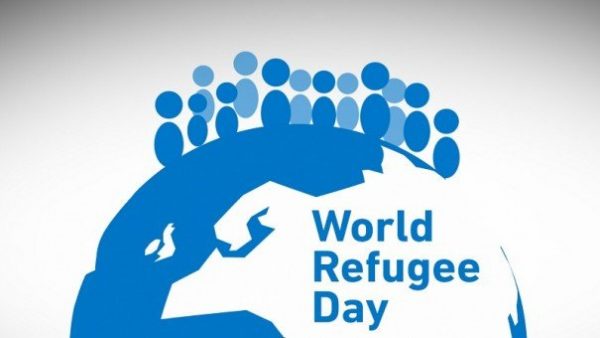Celebrating World Refugee Day
17 June 2022
June 20th marks World Refugee Day. It’s a day to reflect on the challenges refugees and asylum seekers face worldwide and come together to develop solutions to those challenges.
I am part of an international team looking to address the challenges refugees and asylum seekers face when trying to access health care and to address the mental and physical health challenges arising from experiencing trauma.
We recently completed the first phase, the MIST study, and learned a lot of valuable lessons. The two most valuable being, the importance of time and communication. The aim of the MIST project was to interview refugee and asylum seekers, 3rd sector workers who provide support to refugees and asylum seekers, and NHS staff to understand what support was available for refugees and asylum seekers who have experienced torture and trauma and the barriers to accessing that support. The projected was funded Wellcome Trust Institutional Partner Translational of Concept award.
We started by approaching several 3rd sector organisations who provide a range of support to refugees and asylum seekers. The goal was to involve them both as participants in the research and to help the study team to recruit refugees and asylum seekers to take part in the interviews.
The most challenging aspect was getting the 3rd sector organisations to agree to advertise the study and to help identify suitable participants. It was necessary to have several meetings to discuss the study, our goals for the research project (both short term and long term), and the risks to the refugees/asylum seekers. These organisations wanted to make sure we had a long-term plan for how we were going to develop the project.
Some of the organisations had concerns about the risk of causing distress to refugees/asylum seekers and were reluctant to take part. While this is an important concern and one the study team had as well, it can deny agency to those refugees who want to participate in the study. During the interviews many of the refugees talked about the importance of being listened to and being able to share their experiences. In the future, I would want to involve a refugee/asylum seeker in the discussions about the study when first approaching the 3rd sector organisation to take part or to advertise the study. The refugee/asylum can talk about their experiences in taking part and why this work is important to the wider community.
I also made myself available to the discus the study over the phone or email with the refugees/asylum seekers who were interested in taking part. These discussions allowed me to give them a bit more information about the study but more importantly was an opportunity to introduce myself and start the process of building trust. In the future, I think it would be helpful to produce a video to explain the study and who the research team is. The video would be a more accessible and engaging format to share information about the work we are doing and to introduce the study team.
We were successful in meeting our recruitment targets for refugees and asylum seekers and 3rd sector organisations despite the challenges. I am really looking forward to further developing our project and putting into practices some of the lessons we learned during the MIST study.
- June 2024
- May 2024
- April 2024
- March 2024
- December 2023
- November 2023
- September 2023
- July 2023
- June 2023
- April 2023
- March 2023
- February 2023
- December 2022
- November 2022
- October 2022
- September 2022
- August 2022
- July 2022
- June 2022
- May 2022
- April 2022
- March 2022
- February 2022
- January 2022
- November 2021
- September 2021
- July 2021
- June 2021
- May 2021
- March 2021
- February 2021
- December 2020
- November 2020
- September 2020
- August 2020
- July 2020
- January 2020
- December 2019
- October 2019
- September 2019
- July 2019
- June 2019
- May 2019
- April 2019
- February 2019
- December 2018
- November 2018
- October 2018
- September 2018
- August 2018
- July 2018
- June 2018
- May 2018
- April 2018
- March 2018
- December 2017
- October 2017
- August 2017
- July 2017
- June 2017
- May 2017
- April 2017
- March 2017
- February 2017
- January 2017
- December 2016
- October 2016
- August 2016
- June 2016
- April 2016
- March 2016
- February 2016